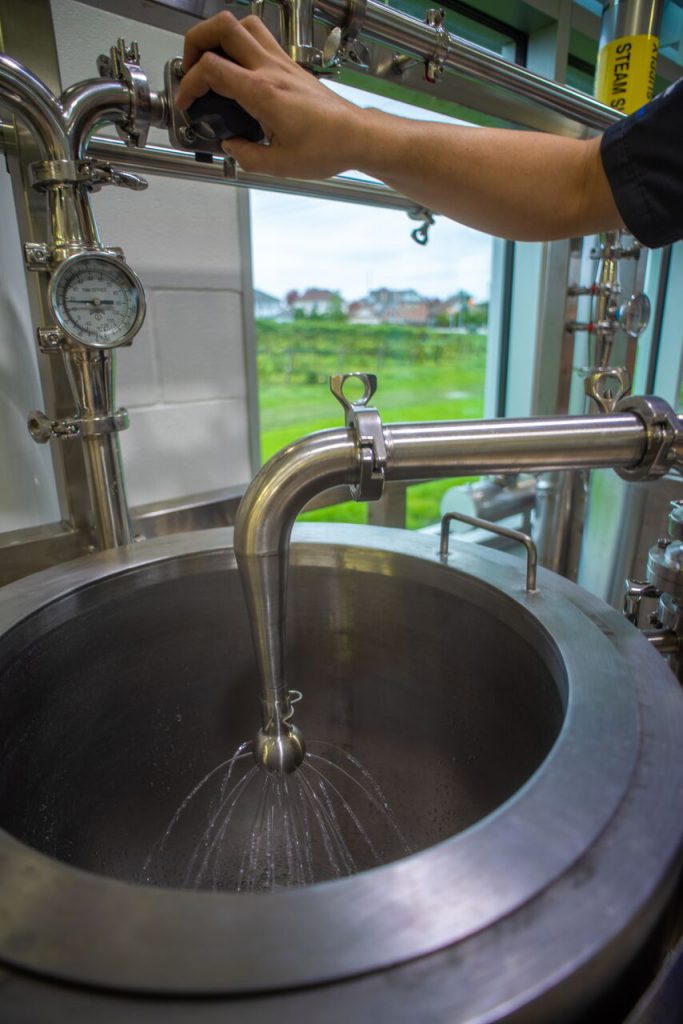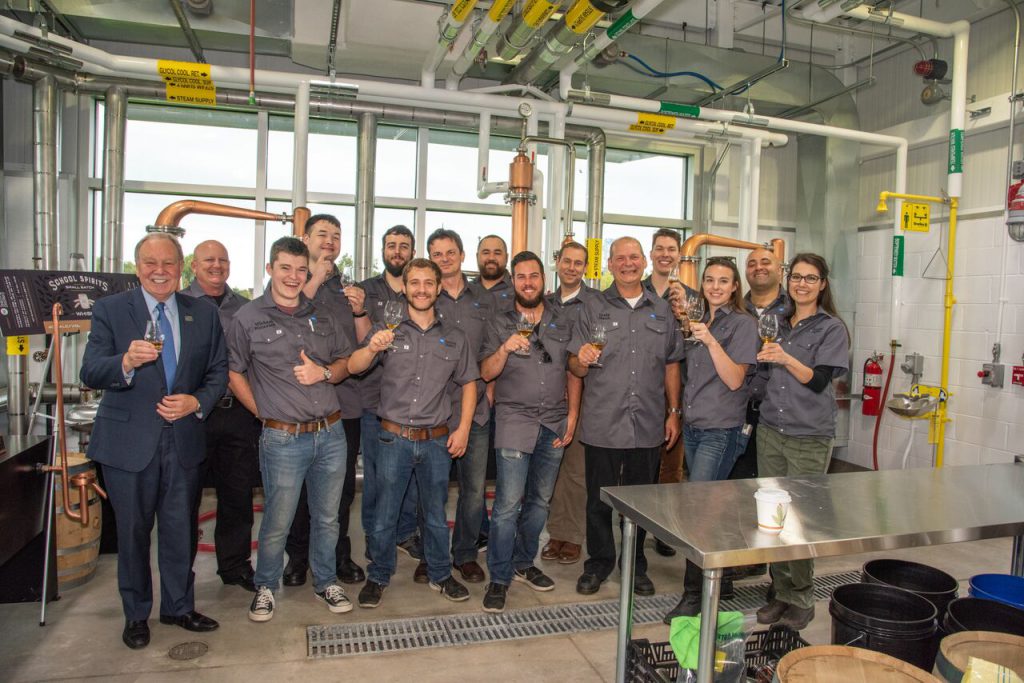Niagara College has opened Canada’s first Teaching Distillery at their Niagara-on-the-Lake campus, and the first batch of students have now begun the Artisan Distilling Graduate Certificate Program.
The state-of-the-art 2,500 square-foot Teaching Distillery is adjacent to the college’s celebrated Wine Visitor + Education Centre.
“The Artisan Distilling program follows in the footsteps of our wine and brew programs that were initially created to support the massive growth in both of those industries,” says Gary Torraville, Associate Dean, School of Food and Wine Sciences, Niagara College.
“As a pre-emptive college, we constantly review market needs and develop programs to meet the need for a highly skilled workforce in those areas. The statistics point to steady growth of craft distilling in Ontario and beyond, and our students will be prepared to enter this industry and support its continued growth due to our highly applied, hands-on approach to education,” Torraville shares.
The distillery houses five stills, four mash tuns and ten fermenters that allow for onsite production of a wide variety of distilled products, including vodka, gin, whisky, brandy, rum and more.
Spirits will be crafted by faculty and students in the new Artisan Distilling program, and will be sold on campus alongside the college’s student-made wines, beers and ciders.
Like growth in any local sector, growth in Ontario’s distilling industry will have an exciting symbiotic relationship with other sectors too.
David Dickson, a distiller at Niagara College, previously with Dillon’s Small Batch Distillery, has shared some insight with us:
“Within Dillon’s philosophy is the idea that fresh local ingredients are better for business and make better products. I hope to carry that tradition forward, and pass on the benefits of using local fruits, grains and botanicals.
Our first crop of Niagara College Artisan Distilling students are currently being trained to fill the need for the burgeoning distilling scene in Ontario and across Canada. The number of small distilleries in Ontario has increased by around 10 times the number compared to when I started a little over five years ago. It is not surprising that many of the distilleries being started are in agricultural areas, because of the demand for products that are higher quality and local. The students have already shown a great interest in using local fruit, grain and botanicals in their own projects, as well as an understanding of the underutilized agricultural products available in Ontario.
The roots of the beverage distillation industry are inexorably tied to farmers and the agricultural industry. Although changes in legislation and tax structure pushed the distillation away from the farmhouse and into the factory, I see a bright future for the relationship between farming and distillation.”
Cheers to that!
Graduates from the program will go on to pursue careers in both small and large volume distilleries as distillation technicians, product development and quality control experts, export licensees, sales and operations professionals and more.
Read more in the media release here.


